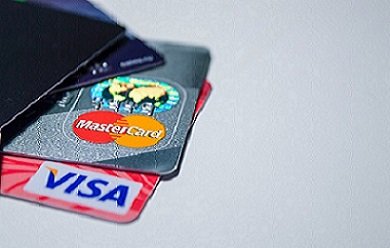Visa and MasterCard agrees to settlement that will lower merchant fees
Do you know that two of the world’s largest credit card networks, Visa and Mastercard, as well as the banks that issue cards with them, have agreed to settle a decade’s long antitrust case brought upon by merchants. See more details below.

The settlement is set to lower swipe fees merchants pay when customers make purchases using their Visa or Mastercard by $30 billion over the next five years, this is according to a press release announcing the settlement.
The settlement, which only applies to US merchants, is the result of a lawsuit filed in 2005. However, nothing is considered finalized until it receives approval from the US District Court for the Eastern District of New York. Even then, the case can also be appealed in what could be a lengthy battle.
However, swipe fees cost merchants 2% of the total transaction a customer makes, but can be as much as 4% for some premium rewards card, according to the National Retail Federation. The settlement would lower those fees by at least 0.04% point for a minimum of three years.
More so, the settlement would require Visa and Mastercard to maintain the swipe fee rates that existed as of December 31, 2023 for five years.
The NRF, a trade group representing retailers, told CNN it has “some very real concerns” with the settlement.
The reduced swipe fees that could come from the settlement aren’t much of a game-changer for merchants, NRF’s chief administrative officer and general counsel, Stephanie Martz, said in a statement to CNN. The saving would amount “to pennies on the dollar,” Martz added.
Although merchants have long argued that swipe fees force them to charge higher prices, the settlement would not necessarily save consumers any money.
TRENDING NEWS NOW: ARGENTINES BUYING BITCOIN INSTEAD OF US DOLLARS
That is because the settlement gives merchants ability to impose surcharges on customers, depending on what kind of Visa or Mastercard card they use. Those surcharges would likely hit cardholders who get rewards such as cash back and airline miles, since those can carry higher swipe fees.
On the other hand, some card holders could get discount on goods and services, since merchants would be able to make deals with banks to get them use what they consider to be preferred card.
Visa Inc is an American multinational payment card services corporation headquartered in San Francisco, California. It was founded in 1958 by Bank of America (BoFA) as the BankAmericard credit card program.
What is a VISA Card?
A Visa Card is a payment card that uses the Visa network and is branded with a Visa logo. The card is used to facilitate electronic funds transfers throughout the world, most commonly through Visa-branded credit cards, debit cards and prepaid cards. Visa is one of the world’s most valuable companies.
What is Mastercard?
Mastercard Inc (known as Matercard from 1979 to 2016, master card from 2016 to 2019) is the second-largest payment-technology corporation in the world ranked behind Visa in the global payments industry. Other major payments networks include American Express and Discover. Mastercard partners with member financial institutions all over the world to offer Mastercard-branded network payment cards.
MasterCard uses its proprietary global payment network, which it refers to as its core network, to facilitate payment transactions, which usually involve the MasterCard account holder and a merchant, along with their respective financial institutions. Payments can be made via credit, debit, or prepaid cards.
Currently, merchants who accept Visa or Mastercard have to accept all forms of the companies’ card.
Separate from the settlement, a bipartisan group of lawmakers in the US House of Representatives and Senate are pushing for a set of new laws aimed at curbing Visa’s and MasterCard’s dominance.
If the proposal passes, the largest credit card issuers, which included JPMorgan Chase, Bank of America and Citibank, would have to work with two credit card processors instead of one. And the two processors they work with can’t be both Visa and Mastercard.
Lastly, do you know know that shares of Visa and Mastercard moved slightly higher after the deal was announced? And this news is coming just one month after Discover (DFS) and Capital One (COF) announced a merger that, if approved by financial regulators and shareholders would create the nations’ largest credit card company in the United States of America.
Visa and MasterCard agree to $30 billion settlement that will lower merchant fees
Spread the Word: if you found this article useful, help others discover it too! Just click and share using the buttons below!
What's Your Reaction?




















